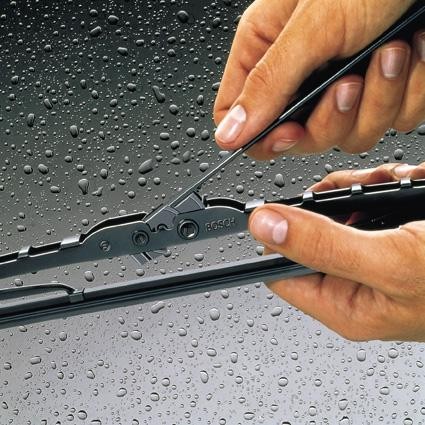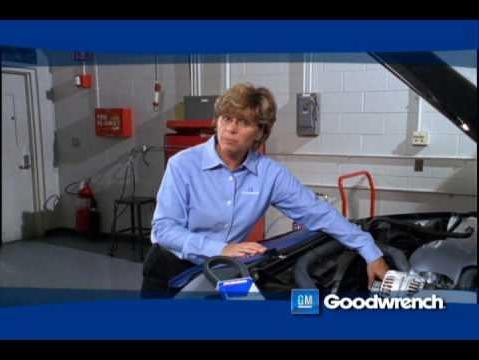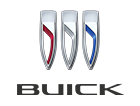Keep Your Automobile Running At It's Optimum Performance With Routine Maintenance
Come into i.g. Burton Lewes Automall Chevrolet Buick GMC for all of your car's routine maintenance services, prevent car problems and keep your vehicle running smoothly. According to Allstate Insurance "proper auto maintenance is not only critical for the long life of your car; it can save your life". Call us at (302) 360-8305 to schedule your appointment today!
Service Tools: Schedule Service / Menu Service / Service Specials
What are these maintenance services for and why are they important?
Come into i.g. Burton Lewes Automall Chevrolet Buick GMC for all of your car's routine maintenance services, prevent car problems and keep your vehicle running smoothly. According to Allstate Insurance "proper auto maintenance is not only critical for the long life of your car; it can save your life". Call us at (302) 360-8305 to schedule your appointment today!
Service Tools: Schedule Service / Menu Service / Service Specials
There are many preventative and recommended maintenance services available, it's hard for most people to keep track of them let alone understand why they're important to the performance and longevity of their car.
What are these maintenance services for and why are they important?
- Oil Changes
- Tire Rotation, Balancing, &/or Replacement
- Wheel Alignment
- Battery Check &/or Replacement
- Fuel Injection Cleaning
- Transmission Flush
- Cooling System Flush
- Windshield Wiper Blade Replacement
- Hose & Belt Check &/or Replacement
- Brake Check &/or Replacement
- Tune Up
- Fuel Economy
Oil, Lube & Filter Change
Why is it important to change your engine oil? It's important because over time, oil breaks down. The biggest contributing factor to this breakdown is the heat in your engine. In addition to the the breakdown of the oil, there are also additives that are put in engine oil. These breakdown over time, and lose their effectiveness as well. If this weren't enough, there's also the issue of contaminates. Small bits of dust, dirt, and debris get into your engine and it into your oil. All of this stuff makes your oil less slippery, and therefore much less able to do it's job. Routine oil changes will help keep your engine running longer.
Many technicians will recommend you change your vehicle's oil, lube and filter about every 3,000 miles or so for maximum protection. Check your vehicle's owner's manual for the recommendations specific to your vehicle. Make sure your particular driving habits meet the conditions of the recommendations. If you have any questions please contact us at (302) 360-8305
Tire Rotations, Balancing & Replacement
Tire rotations makes sure all your tires wear evenly in order to extend the length of the tire's life. Front tires tend to wear on the outsides because the tire leans over when you turn. Rear tires wear much less because they follow the front tires. This is why you want to change which tires are in front, so you keep one pair from wearing out too quickly. Most technicians recommend you rotate your tires about every 6,000 to 7,500 miles or every other oil change. Check your owner's manual for your vehicle's specific recommendations.
It's very important to make sure you have your tires checked for tread and wear often so you know when it's time to replace your tires. Tire replacement is extremely important from a vehicle safety and handling stand point. If you have any questions do the penny test or stop by and let us check them out for you.
Wheel Alignment
Wheel alignments are very important because they make sure the wheels are running parallel with to each other and that the tires meet the road at the proper angle.
Tire angles can get knocked out of line during everyday driving by hitting bumps or debris in the road. When this happens, it can cause your tires to wear unevenly or your vehicle to handle badly.
Alignment warning signs are pretty easy to spot. Unusual tread wear, like cupped, scalloped or odd stripe pattern at the edge are a few things to look for. If your steering feels unusual or stiffer than it use to, this is another sign. Having your steering wheel cocked to one side or the other when your wheels are pointing straight ahead, or feeling a shimmy or pull when driving, are all indicators to get your alignment checked out.
Fuel Injection Cleaning
Fuel injection cleaning is important because it helps increase performance, eliminate hesitation, improve your gas mileage, and lower exhaust emissions.
In a fuel injection system, fuel is sprayed through the fuel injection nozzle into a combustion chamber. For good combustion, the injectors need to produce a fine cone-shaped mist of fuel vapor. Wear or deposits in the nozzle can create "streamers" of liquid fuel that vaporize and burn poorly. This can cause hesitation, emissions issues, and performance problems.
Transmission Flush
A transmission flush is a process that clears the old transmission fluid from your vehicle's transmission. It helps to remove residue of older transmission fluid from converters, coolers, and cooler lines that often are a part of the design for the transmission.
Not conducting a proper transmission flush when needed can lead to costly repairs to your transmission itself. Neglected transmission fluid cannot proper cool and lubricate your transmission. A lack of lubrication to the transmission's internal components will ultimately lead to a faulty transmission.
Cooling System Flush
To transfer heat away from the engine to prevent engine component damage engine coolant is used. A coolant flush is necessary in order to clean out old coolant and residue that can build up over time. If the residue is not flushed once it's built up it will prevent the coolant from functioning properly. This can lead to severe engine component damage.
Wheel alignments are very important because they make sure the wheels are running parallel with to each other and that the tires meet the road at the proper angle.
Tire angles can get knocked out of line during everyday driving by hitting bumps or debris in the road. When this happens, it can cause your tires to wear unevenly or your vehicle to handle badly.
Alignment warning signs are pretty easy to spot. Unusual tread wear, like cupped, scalloped or odd stripe pattern at the edge are a few things to look for. If your steering feels unusual or stiffer than it use to, this is another sign. Having your steering wheel cocked to one side or the other when your wheels are pointing straight ahead, or feeling a shimmy or pull when driving, are all indicators to get your alignment checked out.
Fuel Injection Cleaning
Fuel injection cleaning is important because it helps increase performance, eliminate hesitation, improve your gas mileage, and lower exhaust emissions.
In a fuel injection system, fuel is sprayed through the fuel injection nozzle into a combustion chamber. For good combustion, the injectors need to produce a fine cone-shaped mist of fuel vapor. Wear or deposits in the nozzle can create "streamers" of liquid fuel that vaporize and burn poorly. This can cause hesitation, emissions issues, and performance problems.
Transmission Flush
A transmission flush is a process that clears the old transmission fluid from your vehicle's transmission. It helps to remove residue of older transmission fluid from converters, coolers, and cooler lines that often are a part of the design for the transmission.
Not conducting a proper transmission flush when needed can lead to costly repairs to your transmission itself. Neglected transmission fluid cannot proper cool and lubricate your transmission. A lack of lubrication to the transmission's internal components will ultimately lead to a faulty transmission.
Cooling System Flush
To transfer heat away from the engine to prevent engine component damage engine coolant is used. A coolant flush is necessary in order to clean out old coolant and residue that can build up over time. If the residue is not flushed once it's built up it will prevent the coolant from functioning properly. This can lead to severe engine component damage.
Windshield Wiper Blade Replacement
A good rule to go by is to replace your wiper blades every six months, especially in climates where you have extreme temperatures. It's also recommended to clean the rubber part of the blades at least once a month to keep them in good condition. Inspect your wipers and if you see they are warped, hardened, split, contain strange substances, bent, twisted, or you have a bent arm get them replaced or looked at. Some automatic car washes can do damage to your wiper superstructure so be aware and check your wipers if you use automatic washes unless they are no touch.

Hose & Belt Check Up / Replacement
Belts can drive things like your alternator, air conditioning compressor, power steering pump, and water pump. Over time belts can show signs of wear, and when this happens they can break at any time causing major components to stop working or even cause further damage to other engine components.
Make sure to have your vehicle's hoses and belts checked from time to time to ensure your vehicle keeps running smoothly.

Brake Check Up / Replacement
Brake pads are the parts of a car's braking system that take the brunt of the force to stop the car. Brake pads are positioned between the calipers and the rotors to absorb the energy and heat, and then provide enough grip to stop the car. Brake pads must be replaced before the friction material is worn away completely.
When replacing brake pads it may be recommended to replace rotors as well depending on wear. Replacing rotors along with pads will allow the braking system to work at it's highest level of performance, and will also allow the new pads to have the longest life possible.
Tune Up
- Can improve your fuel economy
- A too rich fuel to air mixture lowers furl economy
- A too lean fuel to air mixture can cause misfiring or engine damage
- Spark plug timing must be set to specifications.
- Clean and properly adjusted points will produce fuel efficient firing
- One spark plug misfiring half the time reduces fuel economy by 7% and two can reduce it by 20%
- Too high an idle wastes gas.
Fuel Economy
No matter what the gas prices are, here are some good things to know. Even economy cars can guzzle more than their share if their engines have been neglected. Beyond squandering fuel, poorly maintained engines are notorious for corrupting the environment. Fixing a car that is noticeably out of tune or has failed an emissions test can improve its gas mileage by over 4%.
Drive Sensibly - Aggressive driving (speed, rapid acceleration, and hard braking) wastes gas. It can lower your gas mileage by 33 percent at highway speeds and by 5 percent around town. Sensible driving is also safer for you and others, so you may save more than gas money.
Observe the Speed Limit - Gas mileage decreases rapidly at speeds above 50 mph. Each 5 mph you drive over 50 mph is like paying an additional $0.23 per gallon for gas. Observing the speed limit not only improves fuel economy, but it is also safer. S-L-O-W D-O-W-N
Avoid Excessive Idling - Idling gets 0 miles per gallon. Cars with larger engines typically waste more gas at idle than cars with smaller engines.
Use Cruise Control - Using cruise control on the highway helps you maintain a constant speed and, in most cases, will save gas.
Use Overdrive Gears - When you use overdrive gearing, your car's engine speed goes down. This saves gas and reduces engine wear.
Clean Out the Junk - Clean out the junk in your trunk and car. The EPA says for every 100 pounds of junk you clean out of your trunk, you can save 2% in fuel.
Save Money - Fuel economy saves you money every time you fill up. The owner of a 40 mpg vehicle will spend $1237.50 less each year on gasoline than the owner of a 20 mpg vehicle. If you own your car for 4 years, the 40 mpg vehicle will save $4,950, assuming 15,000 miles of driving annually and a fuel cost of $3.30 per gallon.
Lewes Automall is here to help you with all of your automotive needs and we know routine maintenance is a big part of that. Let our professionally trained and certified technicians help you extend your current vehicle's life.
No matter what the gas prices are, here are some good things to know. Even economy cars can guzzle more than their share if their engines have been neglected. Beyond squandering fuel, poorly maintained engines are notorious for corrupting the environment. Fixing a car that is noticeably out of tune or has failed an emissions test can improve its gas mileage by over 4%.
Drive Sensibly - Aggressive driving (speed, rapid acceleration, and hard braking) wastes gas. It can lower your gas mileage by 33 percent at highway speeds and by 5 percent around town. Sensible driving is also safer for you and others, so you may save more than gas money.
Observe the Speed Limit - Gas mileage decreases rapidly at speeds above 50 mph. Each 5 mph you drive over 50 mph is like paying an additional $0.23 per gallon for gas. Observing the speed limit not only improves fuel economy, but it is also safer. S-L-O-W D-O-W-N
Avoid Excessive Idling - Idling gets 0 miles per gallon. Cars with larger engines typically waste more gas at idle than cars with smaller engines.
Use Cruise Control - Using cruise control on the highway helps you maintain a constant speed and, in most cases, will save gas.
Use Overdrive Gears - When you use overdrive gearing, your car's engine speed goes down. This saves gas and reduces engine wear.
Clean Out the Junk - Clean out the junk in your trunk and car. The EPA says for every 100 pounds of junk you clean out of your trunk, you can save 2% in fuel.
Save Money - Fuel economy saves you money every time you fill up. The owner of a 40 mpg vehicle will spend $1237.50 less each year on gasoline than the owner of a 20 mpg vehicle. If you own your car for 4 years, the 40 mpg vehicle will save $4,950, assuming 15,000 miles of driving annually and a fuel cost of $3.30 per gallon.
Lewes Automall is here to help you with all of your automotive needs and we know routine maintenance is a big part of that. Let our professionally trained and certified technicians help you extend your current vehicle's life.




